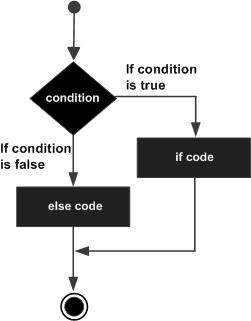
- Go - Home
- Go - Overview
- Go - Environment Setup
- Go - Program Structure
- Go - Basic Syntax
- Go - Data Types
- Go - Variables
- Go - Constants
- Go - Identifiers
- Go - Keywords
- Go - Operators
- Go - Arithmetic Operators
- Go - Assignment Operators
- Go - Relational Operators
- Go - Logical Operators
- Go - Bitwise Operators
- Go - Miscellaneous Operators
- Go - Operators Precedence
- Go Decision Making
- Go - Decision Making
- Go - If Statement
- Go - If Else Statement
- Go - Nested If Statements
- Go - Switch Statement
- Go - Select Statement
- Go Control Flow Statements
- Go - For Loop
- Go - Nested for Loops
- Go - Break Statement
- Go - Continue Statement
- Go - Goto Statement
- Go Functions
- Go - Functions
- Go - Call by Value
- Go - Call by Reference
- Go - Functions as Values
- Go - Function Closure
- Go - Function Method
- Go - Anonymous function
- Go Strings
- Go - Strings
- Go - String Length
- Go - String Concatenation
- Go - Compare Strings
- Go - Split String
- Go - Substring Extraction
- Go - String Replacement
- Go - String Interpolation
- Go - Parse Date Strings
- Go Arrays
- Go - Arrays
- Go - Multidimensional Arrays
- Go - Multidimensional Arrays
- Go - Passing Arrays to Functions
- Go - Pointers
- Go - Pointers
- Go - Array of pointers
- Go - Pointer to pointer
- Go - Passing pointers to functions
- Go Advanced Control Structures
- Go - Scope Rules
- Go - Dereferencing Pointer
- Go - Structures
- Go - Slice
- Go - Slice of Slices
- Go - Range
- Go - Maps
- Go - Recursion
- Go - Type Casting
- Go - Interfaces
- Go - Type Assertion
- Go - Error Handling
- Go - Concurrency
- Go - Regular Expression
- Go - Inheritance
- Go - Packages
- Go - Templates
- Go - Reflection
- Go - Generics
- Go File Handling
- Go - Read File By Word
- Go - Read File By Line
- Go - Read CSV Files
- Go - Delete File
- Go - Rename & Move File
- Go - Truncate a File
- Go - File Read-Write Mode W/O Truncation
- Go Miscellaneous
- Go - defer Keyword
- Go - Fmt Package
- Go - Zero Value
- Go - Import
Go - if...else statement
The if else Statement
Go if-else statement is a conditional statement having two code blocks and executes them based on whether a condition is true or false. In an if-else statement, the if statement is followed by an else statement.
Syntax
The syntax of an if...else statement in Go programming language is −
if(boolean_expression) {
/* statement(s) will execute if the boolean expression is true */
} else {
/* statement(s) will execute if the boolean expression is false */
}
If the boolean expression evaluates to true, then the if block of code will be executed, otherwise else block of code is executed.
Flow Diagram

Example
package main
import "fmt"
func main() {
/* local variable definition */
var a int = 100;
/* check the boolean condition */
if( a < 20 ) {
/* if condition is true then print the following */
fmt.Printf("a is less than 20\n" );
} else {
/* if condition is false then print the following */
fmt.Printf("a is not less than 20\n" );
}
fmt.Printf("value of a is : %d\n", a);
}
When the above code is compiled and executed, it produces the following result −
a is not less than 20; value of a is : 100
The else if else Statement
An if statement can be followed by an optional else if...else statement, which is very useful to test various conditions using single if...else if statement.
When using if , else if , else statements there are few points to keep in mind −
An if can have zero or one else's and it must come after any else if's.
An if can have zero to many else if's and they must come before the else.
Once an else if succeeds, none of the remaining else if's or else's will be tested.
Syntax
The syntax of an if...else if...else statement in Go programming language is −
if(boolean_expression 1) {
/* Executes when the boolean expression 1 is true */
} else if( boolean_expression 2) {
/* Executes when the boolean expression 2 is true */
} else if( boolean_expression 3) {
/* Executes when the boolean expression 3 is true */
} else {
/* executes when the none of the above condition is true */
}
Example
package main
import "fmt"
func main() {
/* local variable definition */
var a int = 100
/* check the boolean condition */
if( a == 10 ) {
/* if condition is true then print the following */
fmt.Printf("Value of a is 10\n" )
} else if( a == 20 ) {
/* if else if condition is true */
fmt.Printf("Value of a is 20\n" )
} else if( a == 30 ) {
/* if else if condition is true */
fmt.Printf("Value of a is 30\n" )
} else {
/* if none of the conditions is true */
fmt.Printf("None of the values is matching\n" )
}
fmt.Printf("Exact value of a is: %d\n", a )
}
When the above code is compiled and executed, it produces the following result −
None of the values is matching Exact value of a is: 100